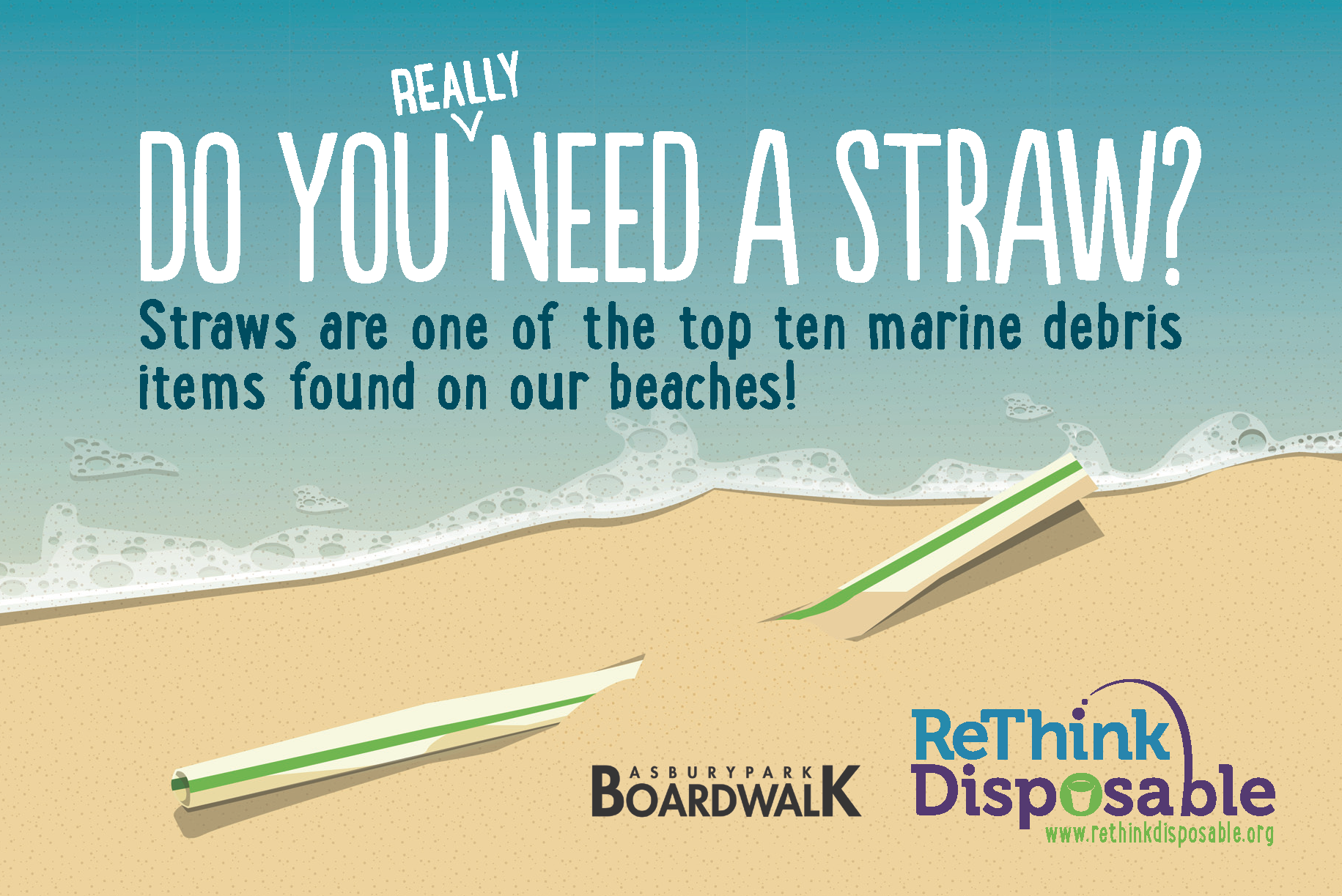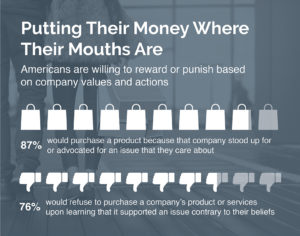 It’s estimated that Americans use 500 million disposable straws a day. For years, environmental groups have targeted single-use plastics such as pop rings, plastic bags and water bottles to eliminate plastic pollution. But it wasn’t until 2015 when a video of a sea turtle injured by a plastic straw went viral that the issue of plastic straws ignited a movement.
It’s estimated that Americans use 500 million disposable straws a day. For years, environmental groups have targeted single-use plastics such as pop rings, plastic bags and water bottles to eliminate plastic pollution. But it wasn’t until 2015 when a video of a sea turtle injured by a plastic straw went viral that the issue of plastic straws ignited a movement.
When a variety of supporting organizations and public hashtags like #laststraw and #stopsucking emerged, consumers showed their collective support to ban straws. In July 2018, Seattle became the largest U.S. city to ban plastic straws and utensils (the culmination of a 10-year effort) and drew widespread attention to the issue. Businesses and more communities got involved. Starbucks pledged to eliminate single-use plastic straws globally by 2020. Alaska Airlines announced it would be one of the first airlines to phase out plastic straws and stirrers. Communities like Oakland, California, and Miami Beach, Florida, initiated new laws and ordinances. The plastic straw ban was the biggest environmental movement of 2018.
But what do plastic straws have to do with farm labor?
Socially Conscious Consumers
 In this new era, consumers expect more from the products they buy and the companies producing those products. Edelman’s 2018 Brand Study found that 64 percent of consumers choose, switch, avoid or boycott a brand based on its stand on societal issues. The 2017 Cone Communications Corporate Social Responsibility Study found that 87 percent of consumers said they would purchase a product because a company advocated for an issue they cared about. Conversely, 76 percent would refuse to purchase from a company that supported an issue contrary to their beliefs.
In this new era, consumers expect more from the products they buy and the companies producing those products. Edelman’s 2018 Brand Study found that 64 percent of consumers choose, switch, avoid or boycott a brand based on its stand on societal issues. The 2017 Cone Communications Corporate Social Responsibility Study found that 87 percent of consumers said they would purchase a product because a company advocated for an issue they cared about. Conversely, 76 percent would refuse to purchase from a company that supported an issue contrary to their beliefs.
How do these trends relate to farm labor issues? Think of plastic straws as the canary in the coal mine. The canary is the alert system for consumer behavior. Research shows that we are logically at a tipping point in the era of social responsibility.
According to the 2018 Influencing Young America to Act survey asked participants to rank key issues by importance to them. The number one issue in the eyes of all young Americans surveyed was Civil Rights/Racial Discrimination (29 percent), followed by Gun Safety (22 percent), Immigration (21 percent) and Climate Change (21 percent). Other feedback from Sustainable Brands reminds us that issues like education, health and the environment have always been important; we are also witnessing the rise of topical issues like mental health, veteran affairs, gender equality and LGBTQ equality.
EFI-Certified Suppliers Poised to Make a Difference
Consumers expect brands to do the right thing, to take a stand, to show how they are making a difference. In the fresh produce industry, we have an opportunity to share with consumers what we are doing for the environment, for producing safer food and for creating a better life for everyone. Imagine if we activated the 2 million farmers and 3 million farmworkers in one collective voice to share the importance of #farmworkerassured.
Plastic straws gave voice to bigger issues around single-use plastic, marine conservation and climate change. What are the bigger issues that Equitable Food Initiative (EFI) and workforce development can give voice to, and how do we make it meaningful for the 300 million people who consume the food we grow every day?
For more information on EFI’s workforce development program, visit equitablefood.org.

